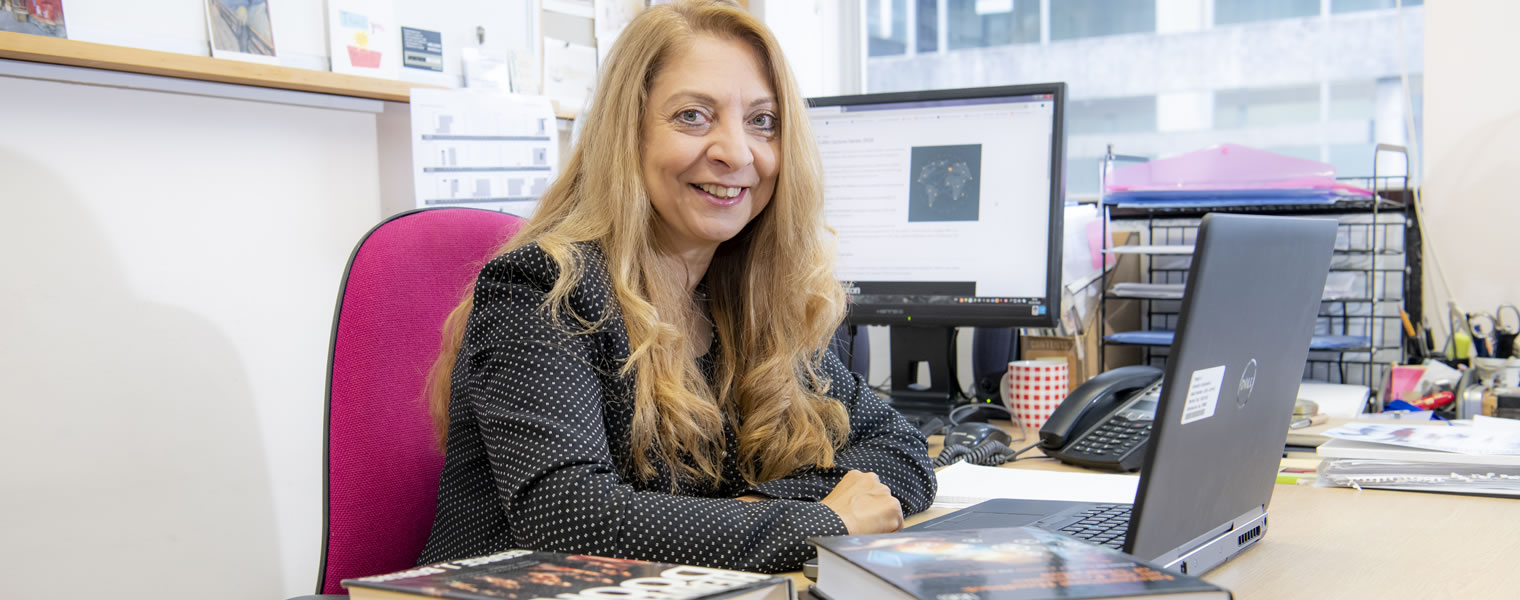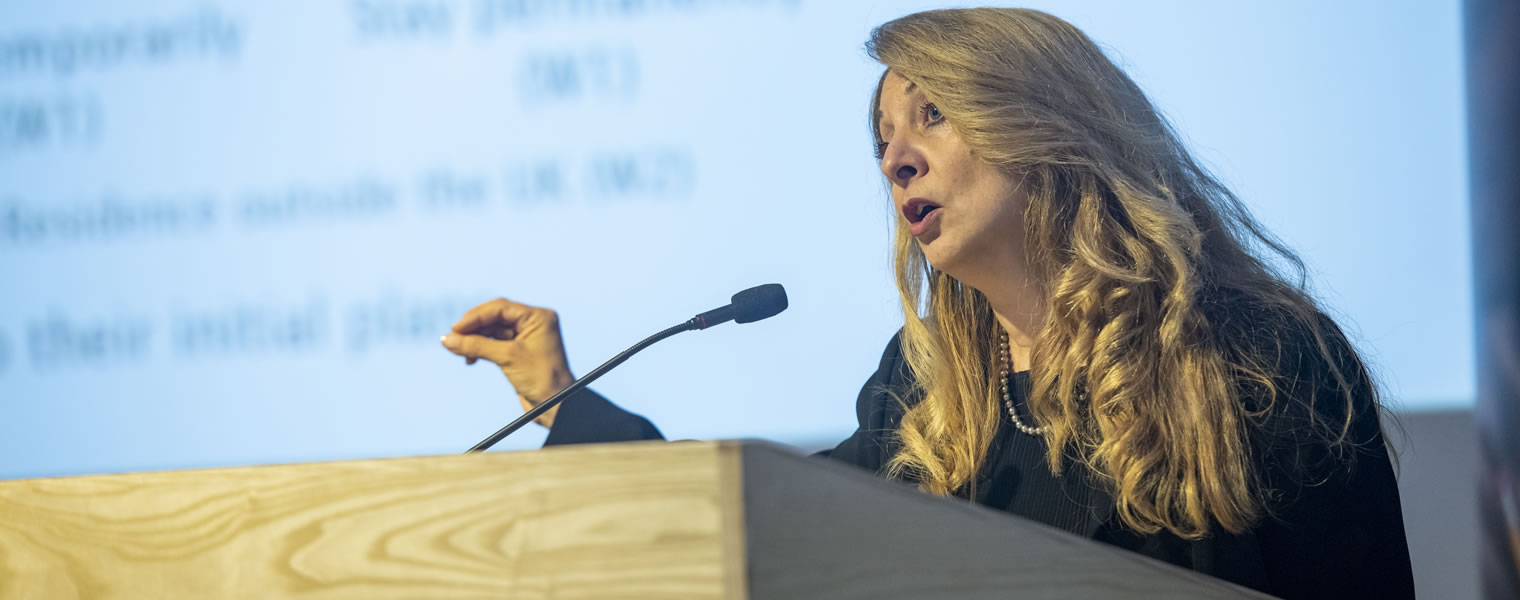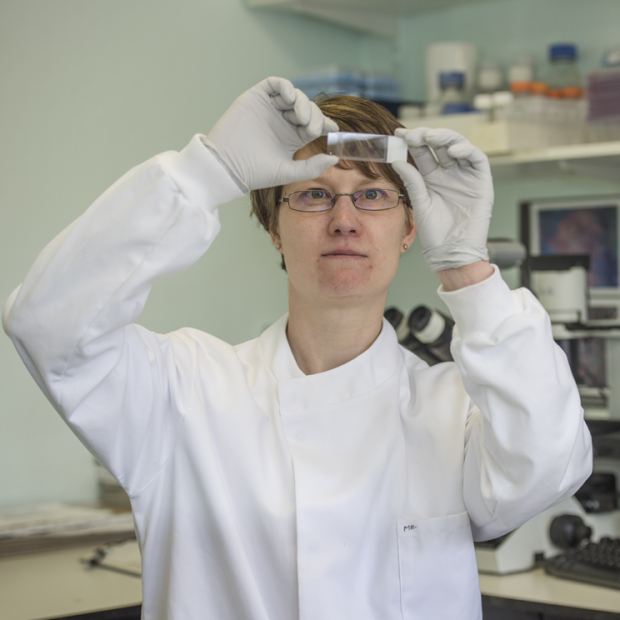Hartley News Online Your alumni and supporter magazine
With the government looking to markedly reduce net migration figures, debate is ongoing as to whether international students should be included within those figures. Jackie Wahba, Professor of Economics at the University, is helping shape policy by providing survey data on migration.
Migration is an important issue in the UK, and, since Brexit, has dominated politics and national debate. The debate has been heightened by government focus on reducing net migration to the tens of thousands per year. A key part of the discussion is whether to reverse the current policy of including international students within the migration figures. By so doing, it is argued, the UK would present a more welcoming environment to international students who bring economic and cultural benefits to the country.
Before any meaningful debate can be conducted, however, the data on student migration need to be accurate, and this is where Southampton has played a vital role, explains Jackie Wahba, Professor of Economics at the University. Jackie is also part of the research team at the Economic and Social Research Council (ESRC)-funded Centre for Population Change, where she jointly leads migration research.
Helping inform policy
“We were approached by the Office for National Statistics (ONS) who have been trying to understand student migration better. Together with Professor Jane Falkingham and Professor Corrado Giulietti, I worked with the ONS and Universities UK to conduct a survey on all graduating non-UK students in the UK. We got a very good sample of students, over 3,500 non-UK undergraduates and postgraduates from over 50 universities in the UK. Based on that survey, it was very clear that the intention of the majority was to leave. Of those that planned to stay indefinitely (just 16 per cent), under one in five planned to continue their studies, meaning that overall, less than 10 per cent of respondents planned to stay indefinitely and find a job.”
The findings came last August – the same time as the ONS was able to access exit checks (in which information included in passports or travel documents is collected for passengers leaving the country). When put together with the International Passenger Survey data (based on interviews with passengers entering and leaving the country), this created a more reliable picture of student migration than was previously possible.
“For international students in particular, it was very clear that all the information was consistent,” Jackie continues.
Prior to this, the very different perception had been that students were overstaying and contributing to net migration figures much more than they actually should have been.
Jackie hopes that the findings will help form the debate and raise questions over the effectiveness of any restrictive policies towards international student migration.
The work is ongoing. “We have since done a follow-up survey to check whether the original intentions of graduating students did materialise, or change, and now we are analysing those results, which is really interesting and groundbreaking,” says Jackie. “Analysing longitudinal data – basically observing the same set of graduates twice for this information – has not been done before.”
The survey is just one aspect of the wide range of research being conducted by Jackie and colleagues at the ESRC Centre for Population Change.
“I’m interested in temporary migration and the factors that trigger people to decide on a return migration. I’m also looking at the implications, in terms of economic behaviour, of people planning to stay temporarily rather than permanently. That may cover physical investment such as housing, or perhaps investment in learning a new language,” says Jackie.
Ongoing research
Another new area her team is investigating is how migration changes norms and behaviours, for example the acquisition of new norms around gender equality, and what sort of positive or negative impact transferring these norms to families back home might have.
“And we have been looking at hosting refugees and the labour market impact. Do countries that host refugees face worse labour market outcomes in terms of employment, wages, and hours of work? We have been looking at the impact of 1.3 million Syrian refugees on the labour market in Jordan, which has a population of six million. When refugees were allowed to apply for work permits, we looked to see if that led to higher unemployment and lower wages for Jordanians, and we found no negative impact,” Jackie explains.
Jackie was an international student herself, moving to Southampton to do her PhD studies.
“I came to Southampton to do my PhD in economics and have been working here since graduating. I chose Southampton as it is one of the top universities in the UK, and the Economics department in particular is highly regarded,” she says.
“Economics now sits within Social Sciences, which promotes an interactive and interdisciplinary environment. Migration, for example is a topic that needs to be studied from both an economic and non-economic angle, and we know that alongside our work, we have colleagues looking at the social impacts of migration. It is quite unusual, as it’s not easy to cross borders between disciplines that have their own techniques and systems, but this interdisciplinary approach gives us a huge advantage and is very rewarding,” Jackie concludes.
Find out more about Professor Jackie Wahba and the ESRC Centre for Population Change
Population and migration will be the theme for the latest Public Lecture Series 2018. Find out more and watch videos of the events here.





